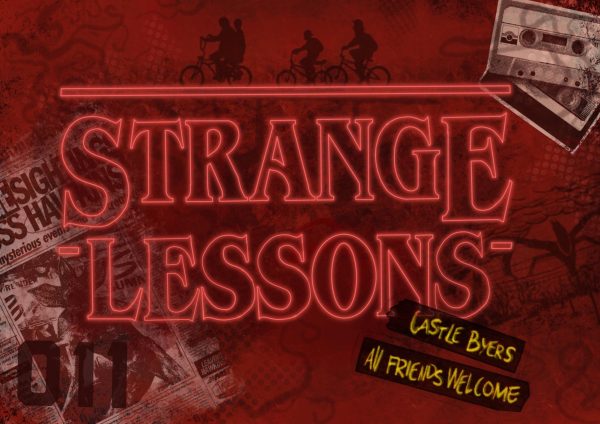Contributor’s Code
As part of WE ARE’s goal to communicate student voice, anyone from Years 7-12 can participate in the creation of content for the website that is underpinned by ethical reporting and expression of opinion. This is to ensure the free exchange of information that is accurate, fair, and thorough.
The following code outlines all principles that WE ARE defines as the foundations of ethical journalism. It should be used as a primary reference source for students that submit any content for publishing on the site, as well as all members of the Editorial Team. These principles are aligned with the Moral Code designed by the National Scholastic Press Association for High School students, remaining specific to student media expectations.
Students engaged in journalism commit themselves to the following principles:
1: Remain consistent with WE ARE’s Mission Statement and the College Virtues.
WE ARE’s Mission Statement affirms that the student publication website is aimed at being a conduit for authentic student voice at the College, celebrating creativity and achievements, championing discussion and debate, enhancing the college ethos and community. Our Mission Statement drives the relevance of all content that is published on the website.
WE ARE additionally strives to commit to the College Virtues:
Integrity
Humility
Hope
Courage
Compassion
Reflecting these qualities in all articles will not only ensure transparency in the communication of all content, but will minimise the rise of hate speech and offensive expression of opinions, promoting a positive and safe space.
2: Report and interpret honestly, seeking to report the truth as accurately as possible.
WE ARE aspires to seek a practical and functional form of truth to align itself with ethical journalism. Editors are expected to review all articles to make sure that information is presented completely and in a proper context that will not mislead the reader. All issues and events that are reported should not be prejudged to optimise fairness.
3: Aim to attribute all information to its source(s).
All information and materials should be properly sourced and referenced. This includes quotes and statistics used in news articles, and the use of supporting images for all articles. Plagiarism is not tolerated.
4: Remain respectful when reporting on sensitive topics.
Students should remain careful and respectful when reporting or commenting on topics that are sensitive to minimise harm for readers. They should take care with the expression of their content and ensure they do not place any distorting emphasis on specific elements of the story. Careful topics include but are not limited to:
- Stories related to death
- Stories related to illegal or ethically questionable behaviours
- Stories involving experiences of grief and loss, trauma, or violence
- Stories involving reputations of individuals and organisations
5: Do not place distorting emphasis on personal characteristics of individuals or groups.
Any distorting emphasis on personal characteristics that is considered offensive or defamatory, including race, culture, sexuality, and ethnicity, as well as a common interest amongst a group of people, is considered hate speech by the Australian Press Council Guidelines, and will not be tolerated. Editors must ensure the following from submitted content from students:
- That comments and personal opinions containing hate speech are not published or broadcasted through the publication site.
- That the inclusion of any personal characteristics is vital to the reporting of the topic.
6: Hate speech and Extremism
The rise of hate speech and extremism in Australia makes the topic a point of concern in journalism. It is antithetical to ethical journalism, making it a careful area for reporting. As a result, participating students in creating content have a responsibility to report carefully on matters of race, religion, culture, sexuality, and ethnicity. Editors must ensure the following from submitted content from students:
- That the coverage of race, culture, sexuality and ethnicity is placed in a social and ethical context that does not place any unnecessary distorting emphasis on the groups.
- That the content avoids emotive or pejorative terms to describe groups of people.
- Practice balance and proportionality when covering issues concerning race, culture, sexuality, and ethnicity.
7: Opinions expressed must maintain respect towards all alternative beliefs.
When commenting on a clashing opinion, students are to avoid offensive or derogatory language. Similar to the expectations outlined under Principle 5, editors should ensure before publishing any content:
- That personal opinions containing defamatory language are not published or broadcasted through the publication site.
8: For reporting purposes, do not allow personal beliefs to undermine the accuracy or fairness of content.
Students should aim to write with a neutral mind, without letting personal biases influence the expression of content. All information concerning issues and events should be presented objectively and in a way that demonstrates relevance and significance.
9: Present material that is fairly obtained and is true and accurate.
All images and supporting information that is used in articles should abide by the Copyright Guidelines, so that it can be used properly. This principle will be maintained specifically by the Editors.
The above Contributor’s Code also applies to photography, videography and comments left on the We Are Site (please note, anonymous comments will not be published).
The Editorial Team reserves the right to edit and publish content, clarity, and length according to these expectations.
WeAre will from time to time present and curate creative works such as music, artworks, movies, etc. Our curation guidelines detail our approach to this.











